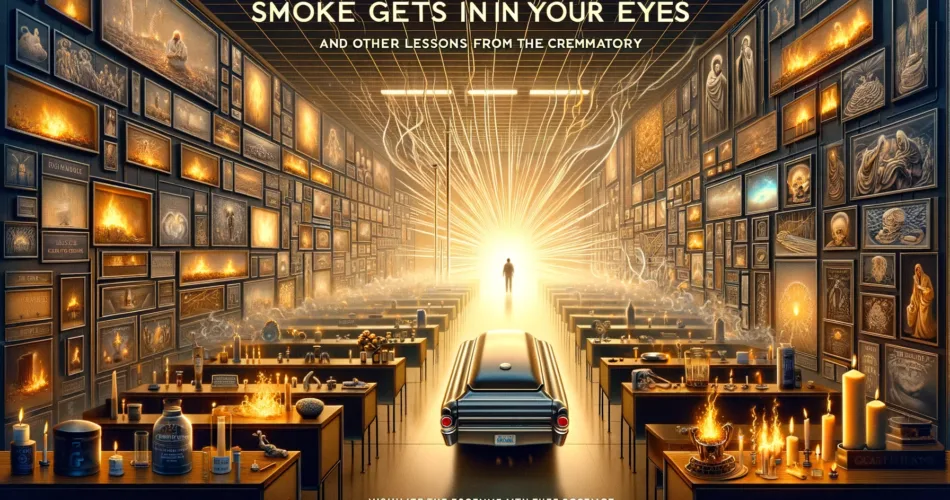In her groundbreaking book, “Smoke Gets In Your Eyes: And Other Lessons from the Crematory,” Caitlin Doty demystifies the death industry, guiding readers through an enlightening journey behind the scenes of a crematory. With humor, grace, and poignant insights, Doty unveils the hidden aspects of death care, challenging societal norms and advocating for a more personal and meaningful relationship with the end of life. This article delves deep into the transformative power of embracing our mortality, underscoring the significance of understanding death not just as a biological event, but as a cultural and emotional process that shapes our lives.
The Historical Shift: From Home to Funeral Home
The transition of death care from the home to the hands of professionals marks a significant cultural shift. Doty explores the origins of this transition, tracing it back to the Civil War and the rise of embalming, a practice that transformed the handling of the dead. This historical exploration sheds light on how modern death care has evolved into a highly commercialized industry, distancing individuals from the personal and communal aspects of death.
Challenging the Status Quo: A Call for Reform
Doty’s critique of the funeral industry is not merely an exposé of its practices but a call to action for reform. She advocates for a return to more personal and meaningful death care practices, encouraging individuals to take an active role in end-of-life planning. From natural burials to home funerals, Doty highlights alternative approaches that honor the deceased while allowing the living to confront and accept mortality.
The Good Death: A Personal Quest
At the heart of Doty’s narrative is the concept of “the good death,” a death that is accepted, understood, and embraced. This idea challenges the notion of death as a failure or something to be feared, promoting instead a death positivity that sees the end of life as a natural, integral part of our existence. Doty’s personal journey through the death industry reveals the transformative potential of facing death with openness and acceptance.
Conclusion: Toward a Death-Positive Future
“Smoke Gets In Your Eyes” serves as a poignant reminder of the inevitability of death and the importance of confronting it with dignity, respect, and understanding. Caitlin Doty’s experiences in the death industry illuminate the path toward a more compassionate and personal approach to death care. By embracing our mortality, we can reshape our cultural norms surrounding death, fostering a society that values the lessons it teaches and the profound impact it has on how we live our lives.
In essence, Doty’s book is not just a memoir of her time in the death industry; it is a manifesto for change, advocating for a world where death is no longer shrouded in fear but embraced as a fundamental aspect of the human experience. Through her candid storytelling and insightful reflections, Doty invites us all to consider how we can cultivate a more death-positive culture, one that honors the dead and enriches the lives of the living.

